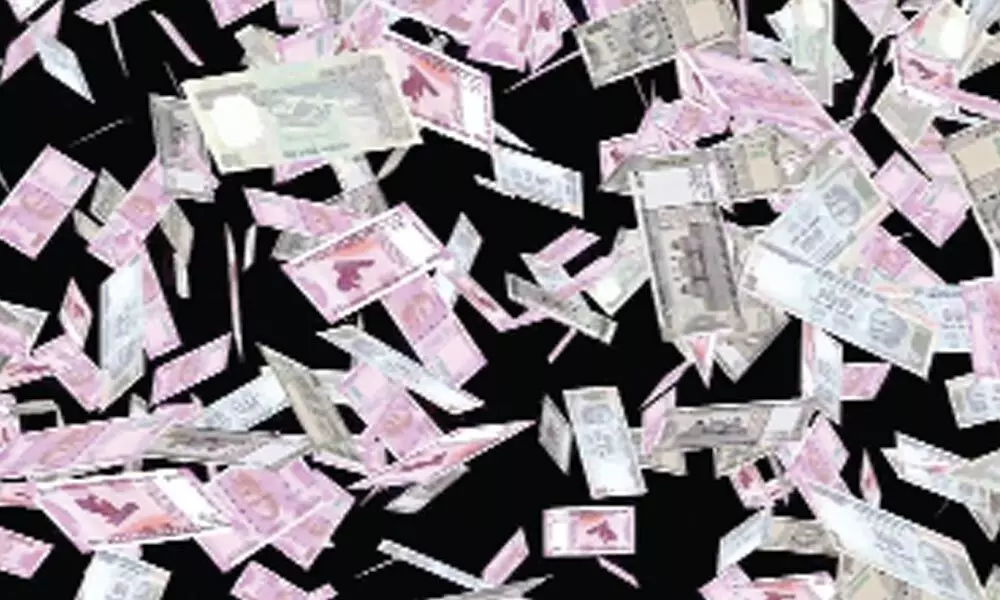PV Ramprasad Reddy: The billionaire who built company worth Rs. 39,759 cr out of nothing
From starting his career as an entry-level purchase department clerk to running a pharma giant, the 63-year-old tycoon’s entrepreneurial journey has been a rollercoaster ride
image for illustrative purpose

PV Ramprasad Reddy and family control the proceedings at Aurobindo Pharmaceutical and have a net worth of Rs22,600 crore. They are at the 56th position among the richest Indians on the Hurun Global Rich List 2021
Born in a family of farmers, Penaka Venkata Ramaprasad Reddy, co-founder of Hyderabad-based Aurobindo Pharma, had remote odds of building a pharmaceutical enterprise. From starting his career as an entry-level purchase department clerk to running a pharma company worth Rs39,759 crore, the 63-year-old pharma tycoon's entrepreneurial journey has been a rollercoaster ride.
PV Ramprasad Reddy and family control the proceedings at Aurobindo Pharmaceutical and have a net worth of Rs22,600 crore. They are at the 56th position among the richest Indians on the Hurun Global Rich List 2021.
PV Ramprasad Reddy sits on the board of Aurobindo Pharma, which he co-founded in 1986. Known for churning out quality generic drugs for the US and other markets, Aurobindo Pharma makes drugs for the treatment of wide range of diseases,from diabetes to cardiac ailments. The company gets nearly 75 per cent of its $3.4 billion annual revenue from the US and Europe. In April 2020, Aurobindo Pharma cancelled a deal to acquire Sandoz's US oral solids and dermatology businesses due to delayed regulatory approvals.
Early life
Early in his career, a brief association with late Dr K Anji Reddy, the founder of Dr Reddy's Laboratories, perhaps kindled new ideas in the young mind of Ramaprasad Reddy. Dr Anji Reddy, a scientist to the core, was then trying to stabilise a fledgling business. His deep knowledge of synthesising drugs with easier and cost-effective techniques helped Ramaprasad Reddy get a fundamental understanding of the sector.
Reddy, a commerce postgraduate from the Venkateshwara University in Andhra Pradesh, roped in friends like K Nityananda Reddy, a postgraduate in chemistry who already had a cozy job in the pharma industry in Tirupati at Tini Pharma, an outfit of Reddy's maternal uncle. After pooling resources by pledging the family silver and raising seed capital from kith and kin, they founded Aurobindo Pharma in 1986,a trading house for bulk drugs. Those were the days when India was gradually emerging as a potential sourcing hub for raw materials or bulk drugs for the US and European multinational companies, which were facing challenges due to stiff environmental regulations and rising overheads. No surprise Ramprasad Reddy's unit had a headstart. Initially Reddy started his entrepreneurial journey by manufacturinga single semi-synthetic penicillin. As demand for low cost active pharmaceutical ingredients (APIs) firmed up further, Reddy sensed an opportunity to move into the manufacturing of small batches of antibiotic drugs. Aurobindo has now expanded its network of manufacturing facilities far and wide. At last count, Aurobindo has 23 facilities including three in the US.
Stake in Aurobindo Pharma
Ramaprasad Reddy along with his wife, Suneela Rani, controls around 38 percent of Aurobindo Pharma, according to BSE data. Reddy owns 6.7 per cent stake, while his wife has 31.2 per cent. In 2012, he transferred 60 million shares owned by him to his wife. The shares represented 20.6 per cent company stake. It was in 1995 that Aurobindo Pharma went public and over time it has broadened its portfolio of drugs that now include anti-retroviral, cardiovascular, gastroenterological and anti-diabetic medications. The company has also branched out into specialty drugs' segment which offers higher margins. Currently, Aurobindo Pharma has its operations spread across 125 countries from where it gets revenues. The cost of manufacturing of the Indian company is almost 65 per cent lesser than that of the firms in the US and almost half of what it costs in the Europe.
The setbacks
Ramaprasad Reddy is unlikely to baulk at challenges, having dealt with a fair share of failures and regrets during his illustrious entrepreneurial journey. Reddy saw setback in the Chinese market where Aurobindo Pharma set up a manufacturing unit on experimental basis and subsequently shut it down. Aurobindo Pharma was also a little late in seize opportunities in the formulations business. Reddy was also not ready with globally compliant manufacturing facilities and product portfolio by the time of the new patent regime that kicked in in January 2005.
Reddy's hallmark
Taking timely decisions has always been Ramprasad Reddy's hallmark. When Aurobindo Pharma got a 180-day market exclusivity for its generic drug Duloxetine –a generic version of Eli Lilly's Cymbalta - Reddy wanted to ship the product on time into the US market, without being too early or late for the launch. For this, he ruled out the regular exports route and preferred to hire a dedicated chartered air cargo that reached the US on time, despite certain highly anxious movements when the flight was almost caught in a storm after a transit halt at Heathrow Airport.
Incidentally, he chose Pondicherry to set up first API manufacturing unit in 1980s as the union territory offered attractive tax incentives. That marked the transformation of Aurobindo Pharma from pharma trading to pharmaceutical manufacturing.
In 2008, the World Pharmaceutical Frontiers rated him as one of the top 35 influential people in the pharmaceutical industry 2008. Today, Aurobindo Pharma has leapfrogged to become the second-largest generics player in the US - easily the toughest market - in terms of share of prescriptions, ahead of homegrown rival Lupin and even global giant Mylan. Ramaprasad Reddy played a key role in the success of Aurobindo Pharma. From farmer's son to pharmaceutical tycoon of global repute, Penaka Venkata Ramaprasad Reddy embodies the true essence of a new age billionaire.

